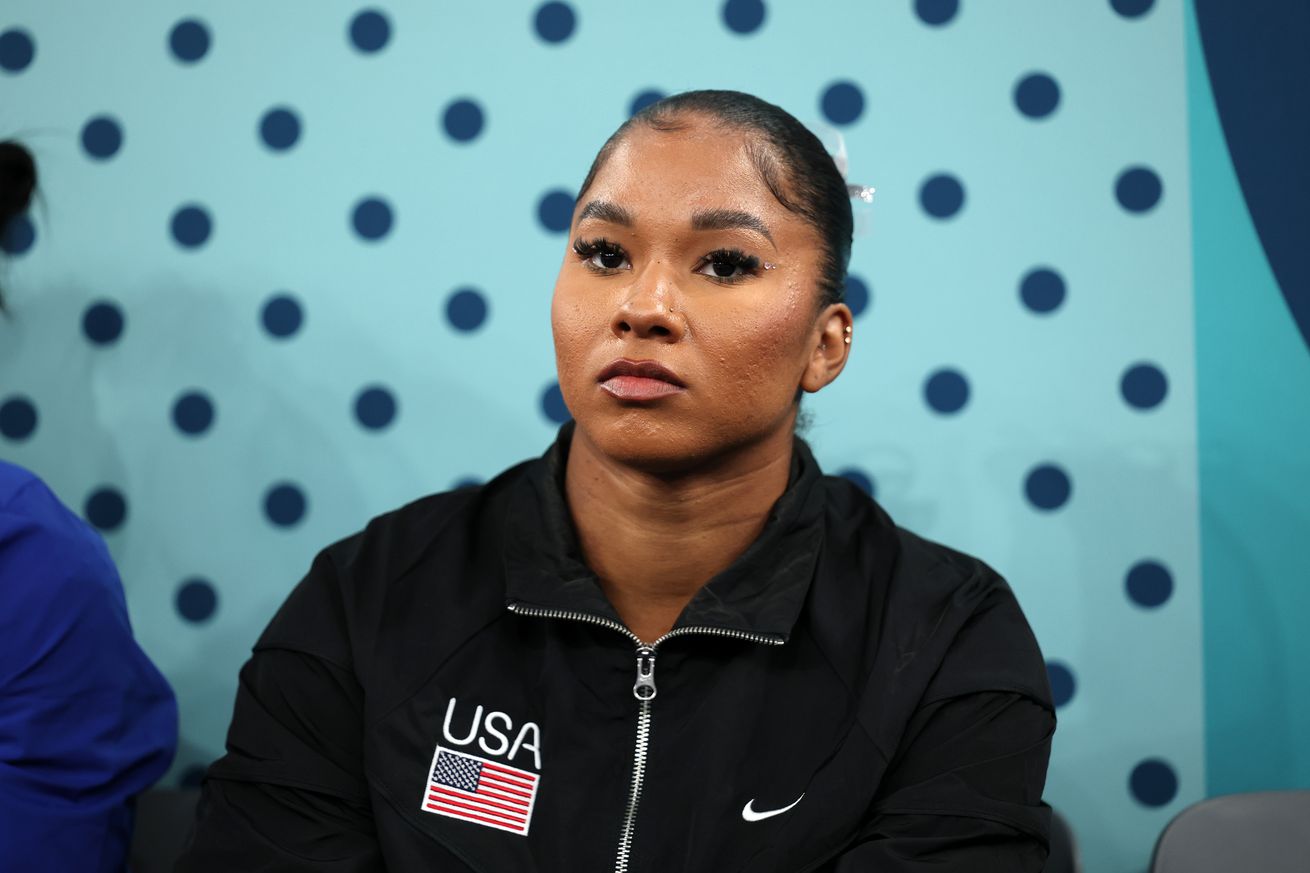Photo by Naomi Baker/Getty Images
The lead arbiter at CAS has ties to Romania since 2011.
The presiding arbitrator for the Court of Arbitration for Sport (CAS) panel that stripped Jordan Chiles of her bronze medal in the women’s floor final, handing it to a Romanian gymnast on appeal, has over a decade of ties to the Romania government.
Dr. Hamid G. Gharavi, a lawyer with French and Iranian citizenship, has an extensive history of serving as both arbitrator and council in a variety of international conflicts. His resume shows he is unquestionably qualified to lead a CAS panel, however there are serious questions over whether Gharavi should have served on this panel considering his prolific ties to the Romanian government.
Chiles was awarded the bronze medal at the close of the women’s floor after an appeal was lodged by the United States that she was incorrectly scored on an element. Judges agreed with Team USA, revising Chiles’ score and moving her into third place — bumping Romania’s Ana Bărbosu off the podium. Romania lodged an appeal to CAS in the days that followed, arguing that Chiles’ coach, Cécile Canqueteau-Landi made her score appeal four seconds after the one minute deadline to request a revision.
CAS ruled in favor of Romania, agreeing that the score appeal was too late — and refused a motion from the United States to re-open their decision in light of new video evidence that Team USA said showed Landi making her appeal in 47 seconds, well ahead of the deadline. CAS stated that it did not have a mechanism to re-open the arbitration.
At the center of the decision was Gharavi. He first came into contact with Romania in 2011, when he was appointed by three U.S.-based claimants in a case against Romania at the International Centre for Settlement of Investment Disputes (ICSID), an entity which operates as part of the World Bank. The cases typically take years to reach their conclusion, but after the case was closed in 2015 Gharavi was hired to represent Romania at ICSID, arguing a case on the government’s behalf in 2016, as well as two cases currently in various stages of arbitration at the courts.
In its very most basic form: A lawyer who is currently employed by Romania was allowed to chair a CAS panel that could decide whether or not Jordan Chiles would be stripped of her bronze medal and handed to a Romanian athlete.
Arbitrators who serve on a CAS panel must complete a conflict of interest form prior to hearing a case, though it’s unclear whether Gharavi disclosed his current connection to the Romanian government. It raises serious questions whether or not Chiles and the United States were allowed a fair hearing, one which not only removed her sole individual medal the games, but also invalidated the first time in Olympic history that three black athletes shared the podium for a gymnastics final.
The International Institute for Conflict Prevention and Resolution, an independent non-profit, raised questions about whether or not Gharavi was fit to preside as chair at CAS over this case considering his connection to Romania.
“The issue is whether an Olympic arbitrator who currently represents a country on the global stage can decide a case involving a gymnast of that country, in an unbiased manner. Is it realistic to expect such arbitrator can decide against the interests of that country or of that country’s gymnast, who in this case is represented by the Federation of Romanian Gymnasts?”
The United States has routinely raised questions about the legitimacy of international governing bodies when it comes to fairness and impartiality. Michael Phelps spoke to congress prior to the 2024 Paris Olympics, raising his concerns over the World Anti-Doping Agency’s apparent deference to China in allowing athletes who had previously tested positive for performance-enhancing drugs to take part in the games. This new information about CAS procedure sheds another concerning light on how international sporting issues are run and adjudicated, including concerns of corruption at their highest levels.
At this time it’s both fair to give Gharavi and CAS the benefit of the doubt considering his longstanding history as an international adjudicator, while also questioning how an independent court system is supposed to operate without bias when key decision makers are allowed to be employed by parties they’re representing in other cases.













